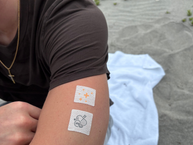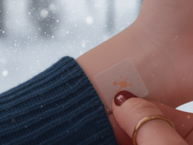Your skin, being the body's largest organ, requires key nutrients to stay healthy. Certain vitamins play a critical role in maintaining your skin's health while enhancing its aesthetics. Where can you find them and how can you incorporate them into your daily routine? Let's delve in.
Vitamin C: The Protecting and Strengthening Powerhouse
Vitamin C has gained recognition for its role in immune function, as well as its ability to aid in the absorption of iron and calcium. However, its importance for skin health cannot be overstated.
Acting as an antioxidant, Vitamin C shields skin cells from the detrimental effects of free radicals. Also, as a requisite for collagen synthesis, it aids in skin elasticity and strength, thus slowing down the aging process.
Although vitamin C is abundant in plant-based food sources like berries, citrus fruits, kiwis, bell peppers, and cauliflowers, diet alone may not fulfill your body’s vitamin C needs. People who smoke or consume fewer fresh fruits and vegetables are likely to have lower levels. For an additional intake of vitamin C, consider the Vitamin C Plus Patch by PatchAid which contains 2,778% of the daily value sourced from acerola cherries and rosehip.
Vitamin D: Not Just For Bones
Commonly associated with bone health, Vitamin D's roles extend to support the skin as well. Deficiency in Vitamin D is often linked to psoriasis, an autoimmune condition causing dry, itchy skin.
Your body can naturally produce vitamin D through exposure to the sun. However, several factors such as aging, dark skin, UV protective clothing, and lack of UV radiation in certain climates can lead to deficiency. Considering fortified food items like milk, eggs, or fatty fish can help boost your intake. If you still come up short, the PatchAid Vitamin D3 Patches could supplement the deficit.
Vitamin E: Heart Healthy and Skin Protective
Vitamin E is a powerful antioxidant that shields skin cells from free radical damage and reduces the risk of dark spots and wrinkles from sun exposure. Its sources include nuts, seeds and their oils, like canola oil. Considering vitamin E's impact on fat oxidation, individuals on high-fat diets may require more intake. PatchAid Multivitamin Plus Patch or Anti-Aging Patch are options to increase your daily vitamin E dose.
Vitamin K: The Bruise and Scar Preventative
Known for its blood clotting role, Vitamin K can help reduce excessive bleeding and bruising, which is vital for skin health. Its deficiency can lead to stretch marks, scars, and spider veins. Leafy greens and fermented foods serve as reliable sources of Vitamin K. Should you need more, the Vitamin D3 with K2 Vitamin Patch can fill the gap.
Sustaining Skin Health: A Few Extra Pointers
In addition to maintaining a balanced diet rich in these vitamins, it’s also crucial to:
- Apply SPF 30 or higher sunscreen while venturing out.
- Cover up with protective clothing and seek shade to limit UV exposure.
- Opt for mild soaps and use clean towels.
- Consult a dermatologist regularly to monitor any skin changes.
- Keep an eye for any signs of skin issues.
Overall, nourishing your skin adequately with vitamins C, D, E, and K, and seeking out expert advice when needed, can help your skin look healthy and radiant. For a supplementary intake, PatchAid Vitamin patches can provide the required vitamins, subject to the approval of your healthcare provider.
Disclaimer: These statements have not been evaluated by the Food and Drug Administration. PatchAid patches are not intended to diagnose, treat, cure or prevent any disease. Anyone with a medical condition should seek the advice of a licensed medical practitioner. Individual results may vary.







